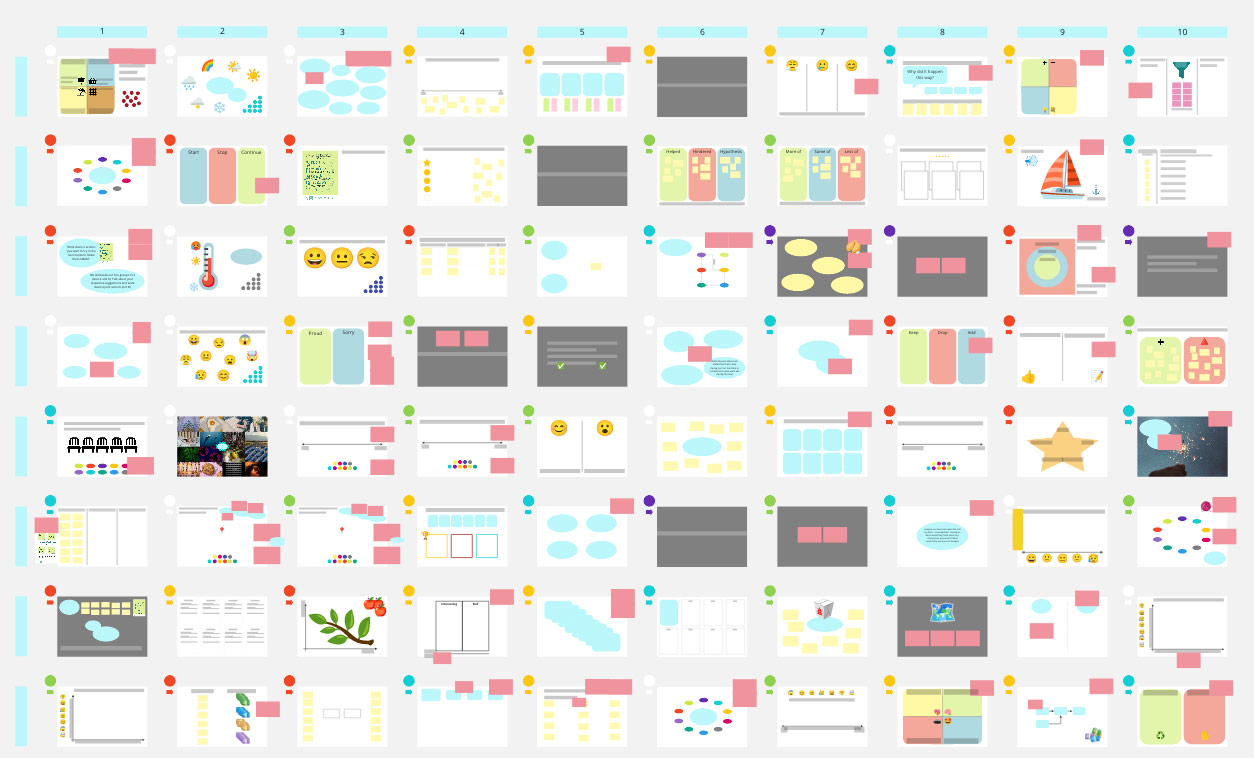Snow Mountain
(#118)
Address problematic burndowns and scope creep
Source:
Olivier Fortier
This activity is helpful when a team is constantly dealing with additional requests and scope creep. Use the burndown chart of problematic sprints to draw snowy mountains with the same outline. Add a few trees here and there. Print drawings of kids in various sledging situations such as kid sledging down fast, kid sledging and being scared, kid with a sledge looking bored, etc. (You can use Google image search with 'kid sledging drawing').
In teams of 2 or 3, ask the team members to identify which kid's reaction goes with which part of the mountain.
Example: If the mountain is flat, the kid might be bored. If you're facing a wall, the kid might be scared.
You can then discuss the team's reaction facing their own burndowns.



